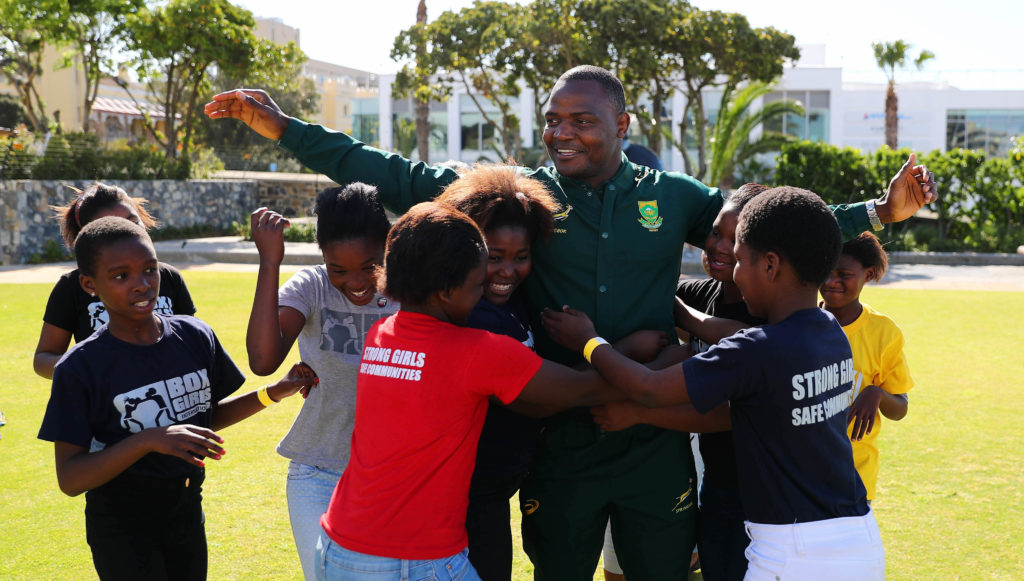The ignominious end to Chiliboy Ralepelle’s once-inspirational career must not be quickly forgotten in a South African rugby context, writes CRAIG LEWIS.
By way of punishment, the eight-year ban handed down to Ralepelle sends out a serious statement.
It comes after the former Bok hooker tested positive for a banned anabolic substance – Zeranol – during an out-of-competition test last year.
It’s the third time he’s been seriously linked with a banned substance. From the first 2010 incident, Ralepelle was cleared of culpability after supplements were deemed to have been contaminated, but he tested positive again in France in 2015, and served a two-year ban before the Sharks offered him a second chance.
READ: ‘It’s a sad end to my career’
That period back in South Africa appeared to be one of redemption for Ralepelle, who started two Tests for the Springboks in 2018, while he was hailed for his leadership role when the Sharks went on to win the Currie Cup later that same year.
‘I have to give credit to this group of players, and particularly Chiliboy, who played a magnificent leadership role throughout the whole season,’ then Sharks coach Robert du Preez said after the win over Western Province in the final.
It’s less than two years later, and despite Ralepelle’s decision to appeal the latest ban, his career is over. He may hope to clear his name to some degree, but the damage is done.
As a trailblazer at the start of his career, and who captained the Boks in an ‘unofficial’ match against a World XV in 2006, Ralepelle was once an icon of South African rugby.
Born in Tzaneen of all places, Ralepelle’s rise from humble beginnings to effectively becoming South Africa’s first black captain was a story that should have been celebrated for generations to come.
Instead, as the 33-year-old has admitted himself, it’s a really ‘sad’ end to his career.
There’s no point in pretending we have all the facts when it comes to this ultimate and final fall from grace.
What also should be noted is how Ralepelle made an interesting – if not strange – comment to Sport24 when he issued words of warning to other players.
‘All I’ll say is that the athletes out there have just got to take care of themselves, look after themselves and make sure that, even if you buy bread, you know who the baker is and what they put in that bread.
‘At the end of the day you’ve got to protect yourself because the onus stays with you as an athlete. It doesn’t matter what you drink, eat or take. Whatever plant you smell, you better make sure it’s clean.’
Ultimately, his implication is that once again he unwittingly consumed a banned substance. Yet that flies in the face of the old idiom: once bitten, twice shy.
It almost beggars belief that Ralepelle would not have taken every possible precaution to ensure any testing would return a ‘clean’ finding after his past incidents.
His point does remain a valid one, though. In this day and age – with stringent and regular testing – players cannot afford to take any risks. And, essentially, the onus is entirely on the player – intent or lack thereof to ‘dope’ does not matter in the professional sports world.
A positive test is a positive test.
Only time will tell whether the full story of Ralepelle’s latest finding are aired in a public space, but one can only hope that he can find a road to redemption once again.
In the meantime, it should serve as a reminder for all athletes about just how quickly things can come crashing down if every precaution is not taken.
And, in a wider context, perhaps it also speaks to the need for mentorship, support and guidance to be provided to players – particularly those who find themselves thrust into an unfamiliar spotlight and immense pressures that are not always easy to handle.
It’s a cautionary tale that should resonate throughout South African rugby.





